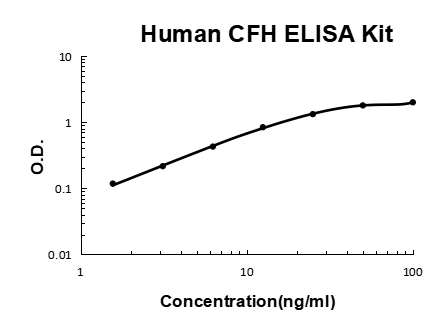MicroVue Factor H EIA
A040
Product group Assays
Overview
- SupplierQuidelOrtho
- Product NameMicroVue Factor H EIA
- Delivery Days Customer7
- ApplicationsELISA, Other Application
- Assay Time150 minutes
- CertificationResearch Use Only
- Scientific DescriptionThe alternative complement pathway provides innate protection against microbial agents in the absence of specific antibody.1-5 The activation of this complement pathway can be triggered by a variety of substances including microbial polysaccharides or lipids, gram negative bacterial lipopolysaccharides, and surface determinants present on some viruses, parasites, virally infected mammalian cells, and cancer cells. In autoimmune diseases, the alternative complement pathway may contribute directly to tissue damage. Factor H is involved in the regulation of the alternative pathway of complement. In blood, activation of C3, under normal conditions, is kept at a low level by the control proteins, Factor H and Factor I. Factor H functions in two ways to inactivate the C3bBb enzyme: (1) it accelerates the dissociation of Bb from C3b; and (2) it serves as a cofactor for Factor I, a serine protease, which cleaves C3b into iC3b, which can no longer form the C3 convertase with Factor B.6 Factor H also regulates the spontaneous fluid-phase activation of the alternative complement pathway by C3b-like forms of C3 that continuously arise in plasma and serum. Therefore, when concentrations of Factor H fall below normal levels, there is rapid fluid-phase activation and consumption of complement components both in vivo and in vitro.7 Known levels of Factor H aid in the diagnosis of several disease states such as atypical Hemolytic-Uremic Syndrome (aHUS), age-related macular degeneration, and dense deposit disease. Complement Factor H has been implicated in the research of many autoimmune diseases. Studies have included using Factor H as a serum biomarker of multiple sclerosis disease state, as a therapy for renal diseases associated with Factor H abnormalities, and as a camouflage to tumor cells for protection against the host immune system. This broad range of testing gives Factor H an appeal to many types of research.9
- UNSPSC41116158


